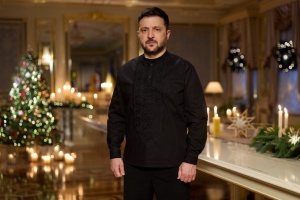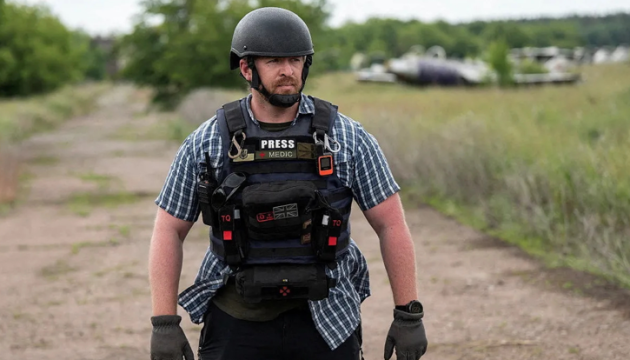
Russian propaganda creates fake about British journalists illegally crossing Russian border to justify attack on them in Kramatorsk
On the night of August 25, 2024, Russian troops launched a missile attack on a hotel in Kramatorsk, where foreign journalists were staying. The strike killed Ryan Evans, a Reuters team member, and injured several other journalists.
The international human rights organization Reporters Without Borders believes that the Russian attack on Kramatorsk was aimed directly at journalists and is preparing to file a lawsuit. Russian officials have traditionally refuted such accusations. In particular, Kremlin spokesman Dmitry Peskov did not provide a direct answer to the question whether Moscow deliberately targeted the hotel in Kramatorsk but said that Russia allegedly launched strikes “only on military infrastructure” or sites that are “somehow connected to military infrastructure.”
However, as is often the case, military propaganda speaks for Russia instead of official spokespersons. One of the largest z-Telegram channels posted that Evans and his colleagues, who were staying at the hotel in Kramatorsk at the time of the strike, allegedly crossed the Russian border illegally and were on Russian territory in violation of Russian law. According to Russia's intelligence service, the media representatives did so in order to film a report in the Kursk region, which is under the control of the Armed Forces of Ukraine. That is why they were the subject of an attack at the hotel in Kramatorsk. This disinformation was then picked up by other z-military bloggers and Russian media outlets.
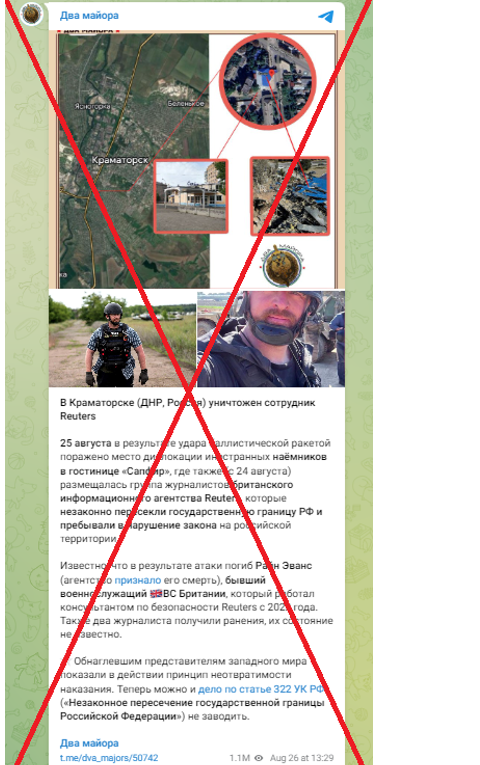
This is a fake. Neither Evans nor Reuters journalists Ivan Lyubysh-Kirdey and Daniel Peleschuk, who were injured in the Russian attack on the hotel in Kramatorsk, crossed the Ukrainian-Russian border in the Kursk region, nor did they report from Sudzha or its surrounding areas. Moreover, none of the Reuters journalists did either. There are no videos with reports from the Kursk region on the British agency's official website and social media platforms.
Ukrainian and foreign journalists did report from the territory of the Kursk region controlled by the Armed Forces of Ukraine. In particular, these are journalists from Ukrinform, 1+1, Hromadske, CNN, Washington Post and RAI. The Russian FSB opened criminal cases against some correspondents of these media outlets under Article 322 of the Russian Criminal Code. However, there were no Reuters journalists among them, let alone the agency's deceased safety advisor, Ryan Evans.
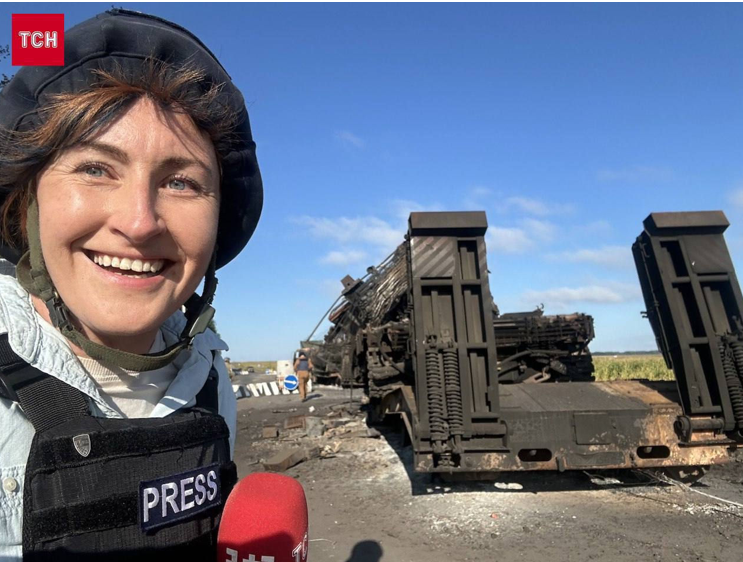
This is not the first targeted attack by the Russian army against foreign journalists, Reporters Without Borders emphasizes. “One thing is certain: since the beginning of the war, the Russian army has been deliberately attacking journalists and their crews to prevent them from reporting, in violation of international law,” said Jeanne Cavelier, head of the Eastern Europe and RSF's Central Asia Desk, in a comment to Radio Liberty.
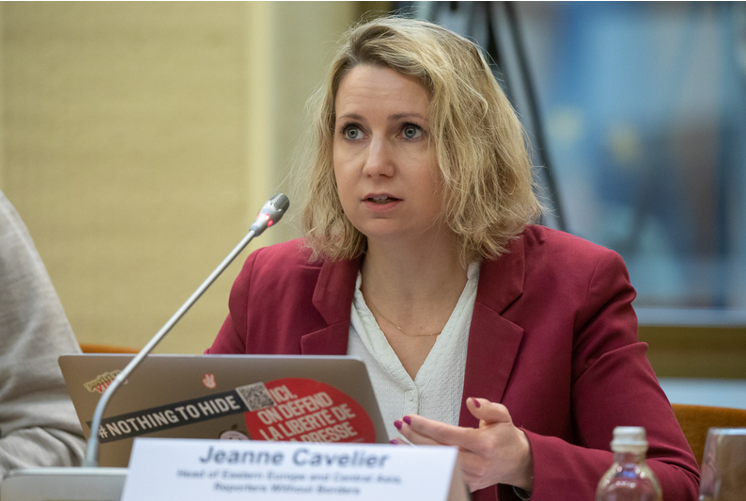
At present, under the procedural guidance of the Donetsk Regional Prosecutor's Office, a pre-trial investigation is underway as part of the criminal proceedings over the fact of violation of the laws and customs of war (Part 2 of Article 438 of the Criminal Code of Ukraine).
The Ministry of Foreign Affairs of Ukraine called on the world to condemn the Russian attack on the hotel in Kramatorsk where foreign journalists were staying. According to the MFA spokesperson, “targeted strikes on media have become Russia’s systemic war tactic.”
According to the Institute of Mass Information, over the two years and six months since the start of the full-scale invasion, Russia has committed 620 crimes against journalists and media workers in Ukraine. Since Russia's full-scale aggression, as of August 24, 84 media workers were killed in Ukraine; 10 of them were killed while performing journalistic tasks.
In this way, Russia continues to use its propaganda and fake news to pressure the work of independent journalists covering Russian aggression against Ukraine. Because of its inability to influence the situation on the battlefield in the Kursk region and to protect its own citizens, Russia is trying to present a different version of events in the information space, using its propagandists to do so.
To achieve this, the enemy is creating fakes about the “huge losses” of the Ukrainian Armed Forces in the Kursk region, passing off old photos and videos or those shot in other areas as events in the Kursk region. Another example of Russian propaganda is the “justification” for the murder of a Reuters employee.
Andriy Olenin

